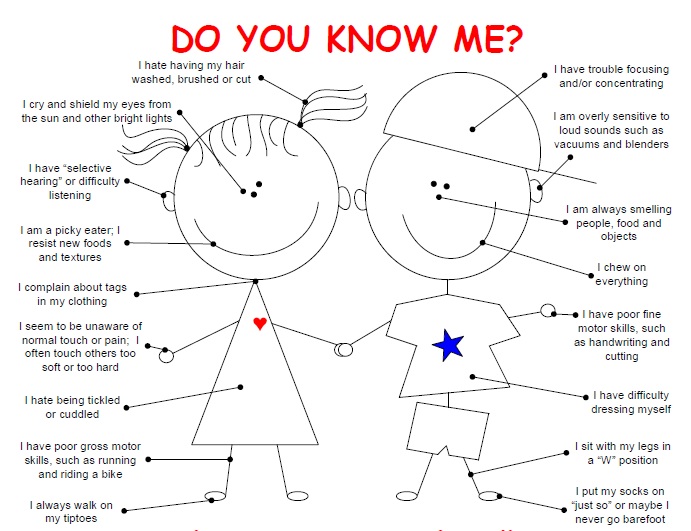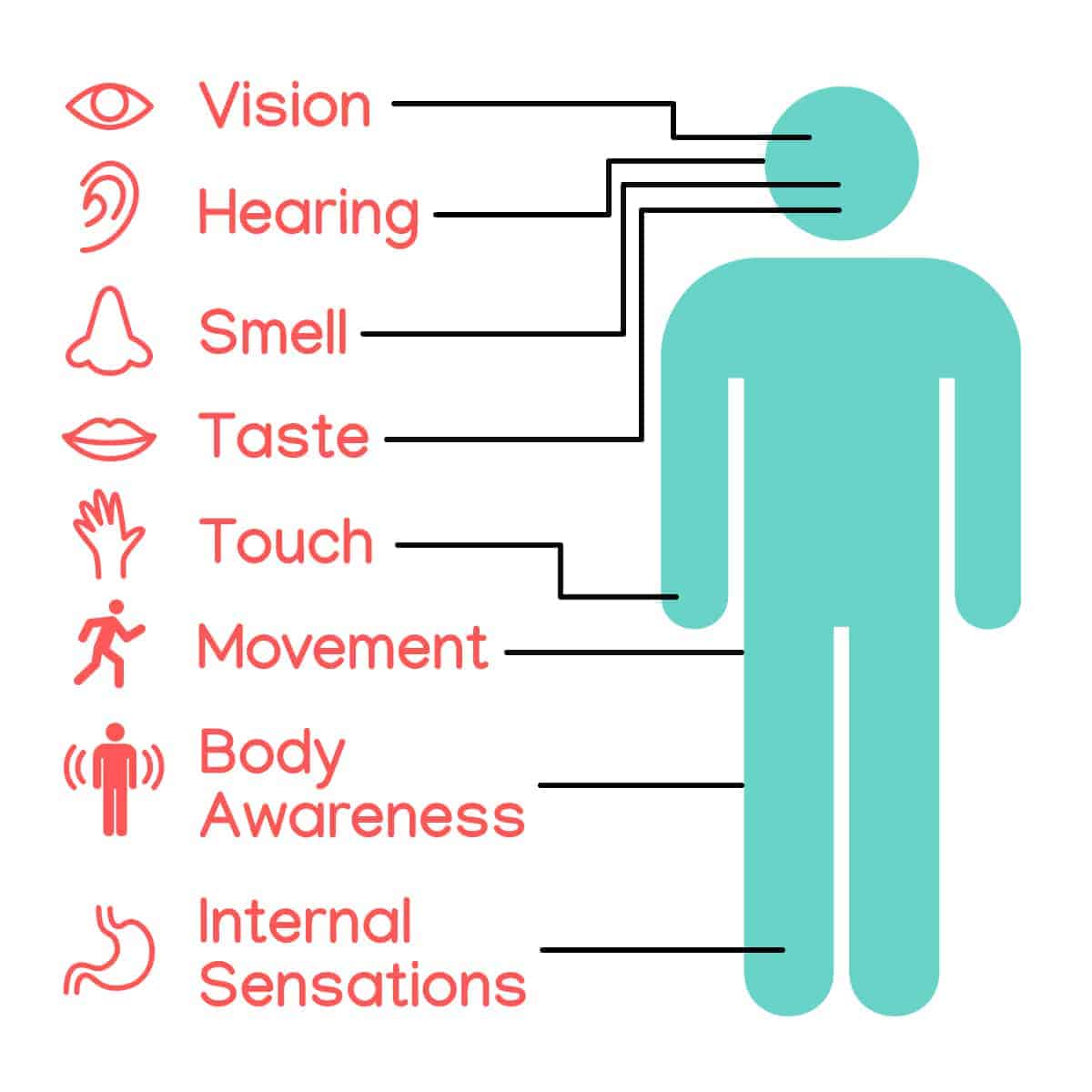Antwort Can you have sensory issues without autism? Weitere Antworten – Can you have sensory without autism
Although they sound similar, sensory processing difficulties can be present without autism. Often children or adults with other neurodevelopmental or psychiatric conditions such as Developmental Delay, Intellectual Disability, Anxiety, ADHD, or mood disorders can also exhibit Sensory Processing Disorder.But SPD is not currently a recognized psychiatric disorder. Sensory issues are considered a symptom of autism because many people on the autism spectrum experience them. But not everyone with sensory issues is on the spectrum. Some have ADHD, OCD or developmental delays.Sometimes they resolve on their own, but even when they're severe and continue for many years, sensory processing issues do improve. Often, this improvement can be enhanced by skills learned in occupational therapy or by providing the child with environmental accommodations.
How do I know if I have sensory processing disorder : Signs of SPD hypersensitivities (over-responsiveness):
Some common symptoms include: Extreme response to or fear of sudden, high-pitched, loud, or metallic noises (flushing toilets, clanking silverware, etc.) May notice or be distracted by background noises that others don't seem to hear. Fearful of surprise touches.
Can you be overstimulated if you’re not autistic
Sensory overload can happen to anyone, but it is more common in autistic people and people with ADHD, PTSD, and certain other conditions. It causes feelings of discomfort and being overwhelmed. Moving away from sources of sensory input, such as loud sounds or strong smells, can reduce these feelings.
Are sensory issues ADHD or autism : Over-sensitivity or under-sensitivity to sensory stimuli is one of the criteria for an autism diagnosis. However, sensory challenges are not a part of the diagnosis of ADHD. Nonetheless, children with ADHD do experience sensory differences.
Sensory processing disorder (SPD)
- Sensory modulation disorder (SMD)
- Sensory-based motor disorder (SBMD)
- Sensory discrimination disorder (SDD)
We simply do not have evidence that children can “outgrow” SPD if it is left untreated.
Why did I develop sensory issues
The exact cause of sensory processing disorder isn't known. It is most often seen in people with autism spectrum disorder (ASD) and other developmental disabilities. Most research suggests that people with ASD have irregular brain function. More study is needed to find the cause of these irregularities.Can it become worse as one ages SPD becomes worse with injuries and when with normal aging as the body begins to become less efficient. So, if you always had balance problems and were clumsy, this can become more of a problem in your senior years.Subtypes of SPD Explained
- Summary of Sensory Processing Disorder Subtypes.
- Pattern 1: Sensory Modulation Disorder.
- Pattern 2: Sensory-Based Motor Disorder.
- Pattern 3: Sensory Discrimination Disorder.
Neurodivergent individuals often experience differences in mental function, learning styles, sensory processing, communication styles and behaviors. They may struggle with soft skills such as emotional intelligence, social interactions or the ability to work effectively in a group.
What does a sensory overload feel like : Sensory overload is when your five senses — sight, hearing, smell, touch, and taste — take in more information than your brain can process. When your brain is overwhelmed by this input, it enters fight, flight, or freeze mode in response to what feels like a crisis, making you feel unsafe or even panicky.
Am I autistic or ADHD female : ADHD is diagnosed when a patient has symptoms of inattentiveness, hyperactivity, and/or impulsivity. For an ASD diagnosis, however, the patient must have clinically significant difficulty with social interaction or communication, and unusually restricted or repetitive patterns of behavior or interests.
How to tell the difference between sensory disorder and autism
Children with SPD tend to have more problems with touch than do those with autism, whereas children with autism struggle more with sound processing. This may explain why language and communication problems are characteristic of autism.
Sensory processing disorder is common in people with ADHD. This condition causes problems processing sensory input. People with sensory processing disorder may experience sensory overload in situations where there is a lot of noise, bright flashing lights, crowds, or other sensory input.Sensory modulation disorder is the most common form of SPD. It indicates trouble regulating responses to stimulation. People with it are under or over responsive, since the nervous system does not know when to pay attention to or ignore stimuli. It leads to abnormal sensory seeking, or hiding from stimulation.
Does SPD affect intelligence : Common Sensory Processing Disorder Myths
Fact: SPD and IQ are not connected. In fact, many children with SPD are intellectually gifted.





